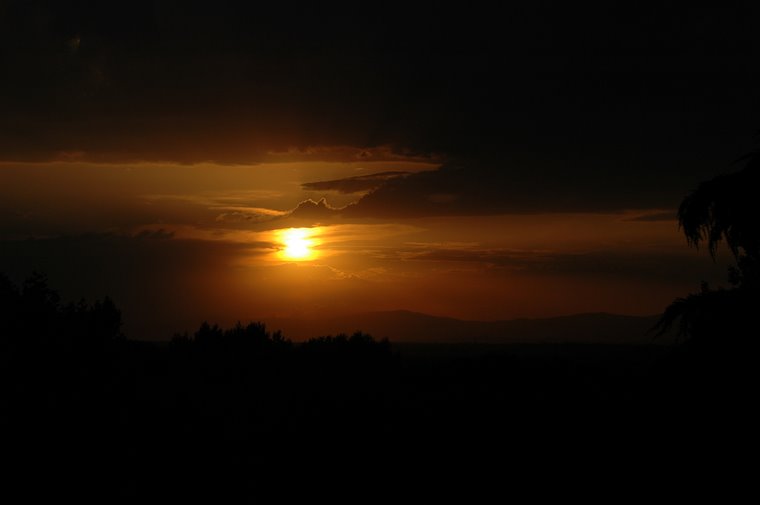I followed my father into the business world. He made his entrance through a back door, falling into a niche as a property manager in Indiana’s state parks. A winding path corralled him out of property managing into residential real estate development and sales. Now he does deals. His grandest and most recent—a 300 acre parcel of ground west of Indianapolis—has garnered favorable attention from many in the business. His neighborhood occupies 300 acres of beautiful, historic land, rummaged over by ravines, meadows, and streams, by great oaks and thick maples and nasty hickories. It has been ten years since the first papers were signed. He is still working on it, and I work on it for him.
I, like him, did not plan on doing deals. He majored in sociology or social work or psychology—something about fixing people, not things. I graduated last spring. I have a degree; it is not in business, not in doing deals. I majored in Religion and Philosophy. I was in the Honors College. At the commencement, (quite nearly a coronation) I shook the president’s hand and he called me by name. While he was shaking my hand, he told me that the school would miss me. I have been back. They do not. So I have traded in my reading and my thinking, and I am planted, rooted, in the business world. Unfamiliar as I was coming from a degree in the Humanities, I learned quickly that business needs no introduction into our lives. It is already in us; it already (and has always) had us. With the charm of a colonoscopy, money, in its gutters, moves through us, occupying all that we are.
I am now acquainted with this process. You see, I negotiated a deal this summer. “But,” you say, “in the real estate business, deals almost always begin slow, almost always pay off slower, and often collapse into a great cloud of dust.” Yes, it’s true. I grant it, but I have already negotiated my first deal. It is done. With no great grace or fluidity, I stumbled into the “sure-thing” of business lore. Admittedly, I was lucky. One could contend that I was present--that I could not have muffed it up. But most importantly (in the world of business, we reiterate this lesson often): it has come, gone, closed. It has left me to smile and pat my own back. Signed, sealed, delivered. Done.
And this, my fellow graduates—my nay-saying, incredulous, business major fellow graduates—is the story how it came about:
The tractor I drive is a dirty but dependable Kubota, a dusty orange heifer that groans from her haunches as she drinks down the fuel that brings her to life. The groan becomes a roar as she gulps down diesel. She kicks up a small cloud as she starts, and I cannot help but breathe it in, the mix of summer dust and hot black fumes. She’s amiable once she warms. I pull her out of the maintenance shed and out to the road. We usually make the trip without much fuss.
Down past the big houses, we roll over the asphalt on her mammoth rubber tires. We turn right at 100 South, cruise over the big bridge, the giant of concrete and earth that holds up the traffic as it moves between ridges, then up and left into Devonshire. We arrive exhaling and with some cracking of knuckles. Our destination: six acres of hell for which I have been contracted to conquer.
I lower the deck into position with a flick of my wrist, fire up the blades with resilience and a glare, and ride into the thickest of it—shrubs, and battle. We clamber over the craggy soil, bouncing over ground hidden by opaque brush. Behind us, the grass thanks us for its first view of the sun in months.
Our adversaries, however, are not pleased. Giant Ragweed, Canada Thistle, and their infantry oppose us with vigor never seen in these parts of Indiana. Their sordid infantry, composed of insectival foes: companies of Striped Horseflies and Biting Midges, with the occasional Robber Fly snooping in as a scout.
Three rows in, and they are swarming. We trudge through, never stopping, pausing only as the Canada Thistle gets especially thick and I am forced to pull her of medium and drop into low. The thistle in front of me opens and yields up a cloud of midges. But we will not stop. And they are on me; my arms are covered; I am being eaten. I slap and rub and slap and punch and pick, and feed more diesel into my heifer. She roars and tears at the thistle, and we sprint for the end of the row. One small patch of Giant Ragweed and we are out of it, onto lush green lawn. I finish off the remainder of wounded midges, my arm-hair showing signs of ugly battle.
I guide my orange giant in an arc, back to the edge of the fight. She is hot, breathing black fumes, ready. But a moment of brilliance overtakes me; I ease her away from the waiting hordes. We back down. My eyes are drawn up, above the tangled burrow, to dark blurs like pendulums above the madness. I squint, sharpening the silhouettes darting through the dust.
I mastermind a deal. Deftly, and without hesitation, I orchestrate an agreement, on-site, with a crack squad of American tree sparrows. We concoct our deal in the heat, in the grime and sweat of the Indiana August. Our negotiations come and go quickly. We make a deal, and it is simple.
They are the sharpshooters, the gunslingers. I am the Howitzer. I feed the diesel steadily into my mount and we run through the field. Pumping engine exhaust under the Ragweed, into the enemy camp, we force the legions of pests out into the crossfire of swooping sparrows. They are efficient. I am ruthless. The bugs are thick but outmatched. With every lap, the sparrows increase in number, and soon the deed is done. The field shows signs of the strain, but the green grass smiles up from its liberation. The sparrows, thick from their gluttony, nod to me, and I to them, until we meet again.
And to think people doubt me when I tell them that philosophy degrees are worth their weight in business, indeed, in all of life.


